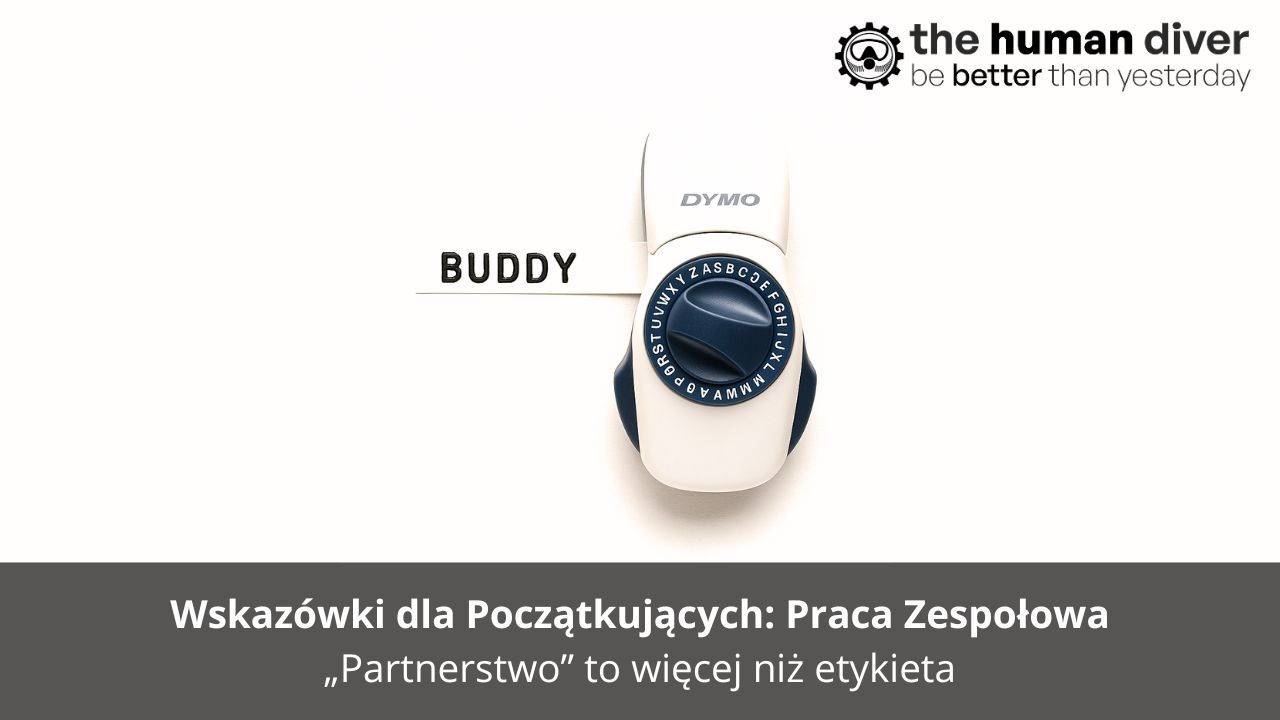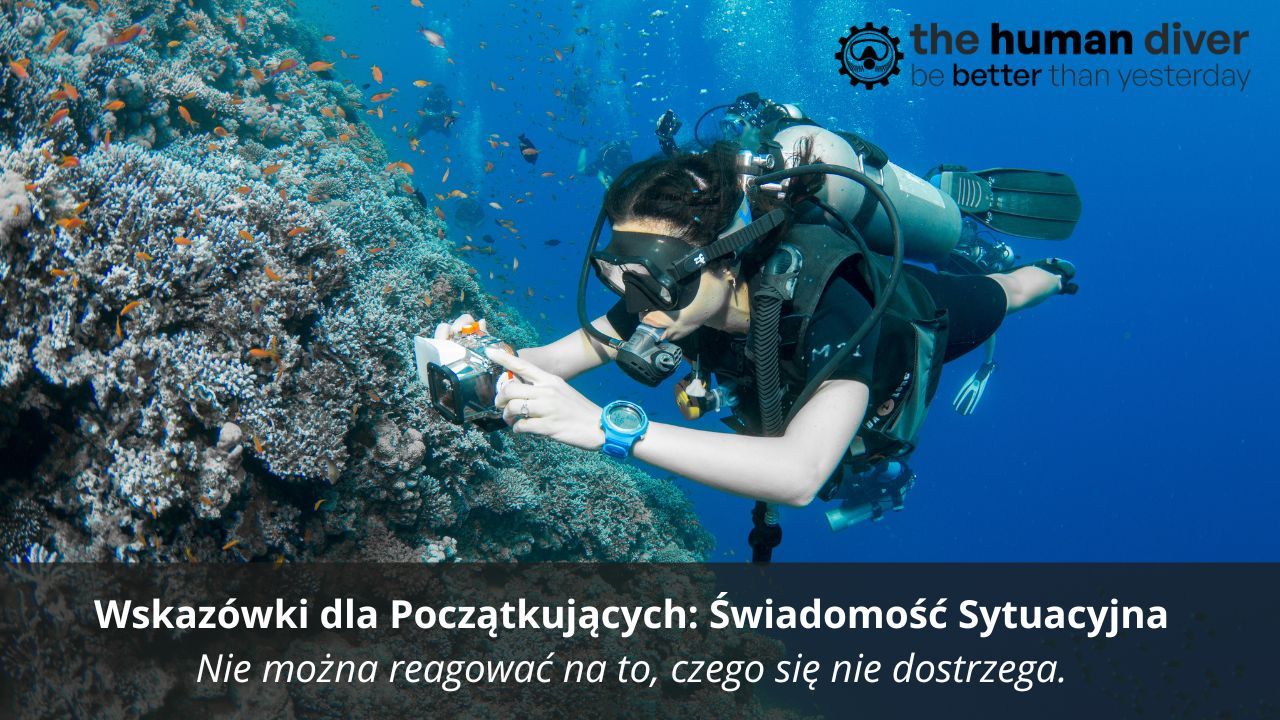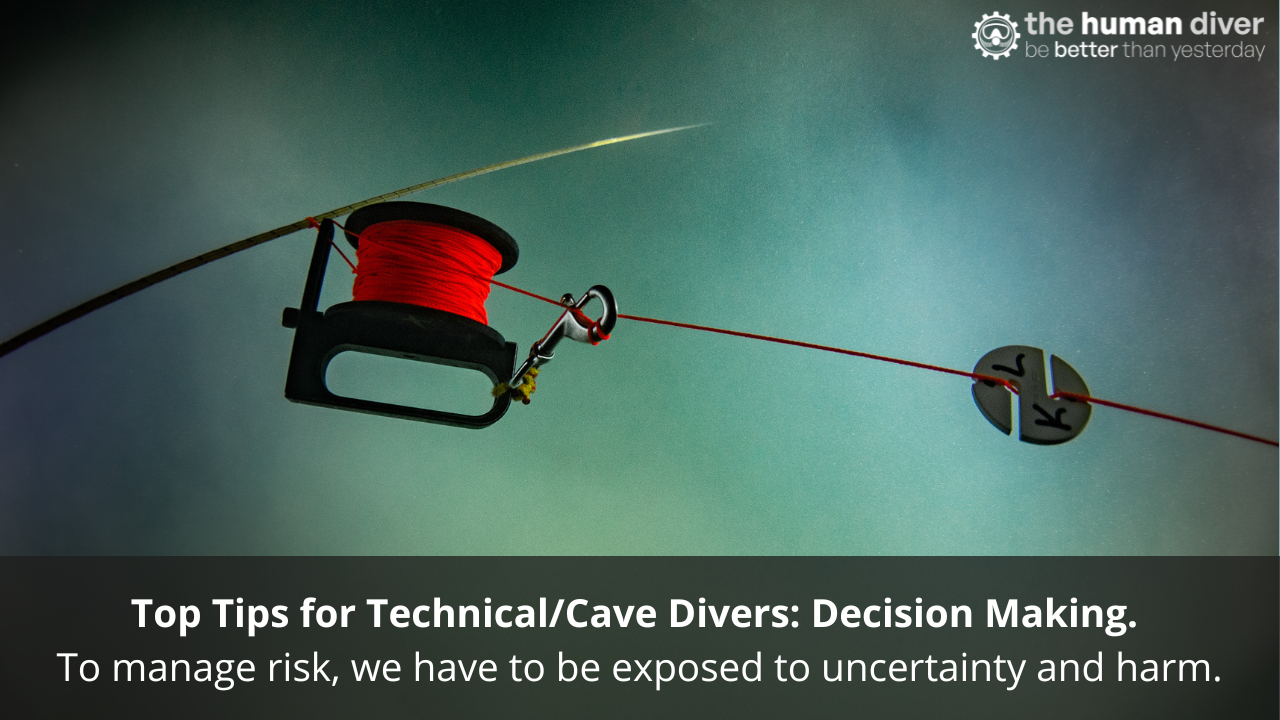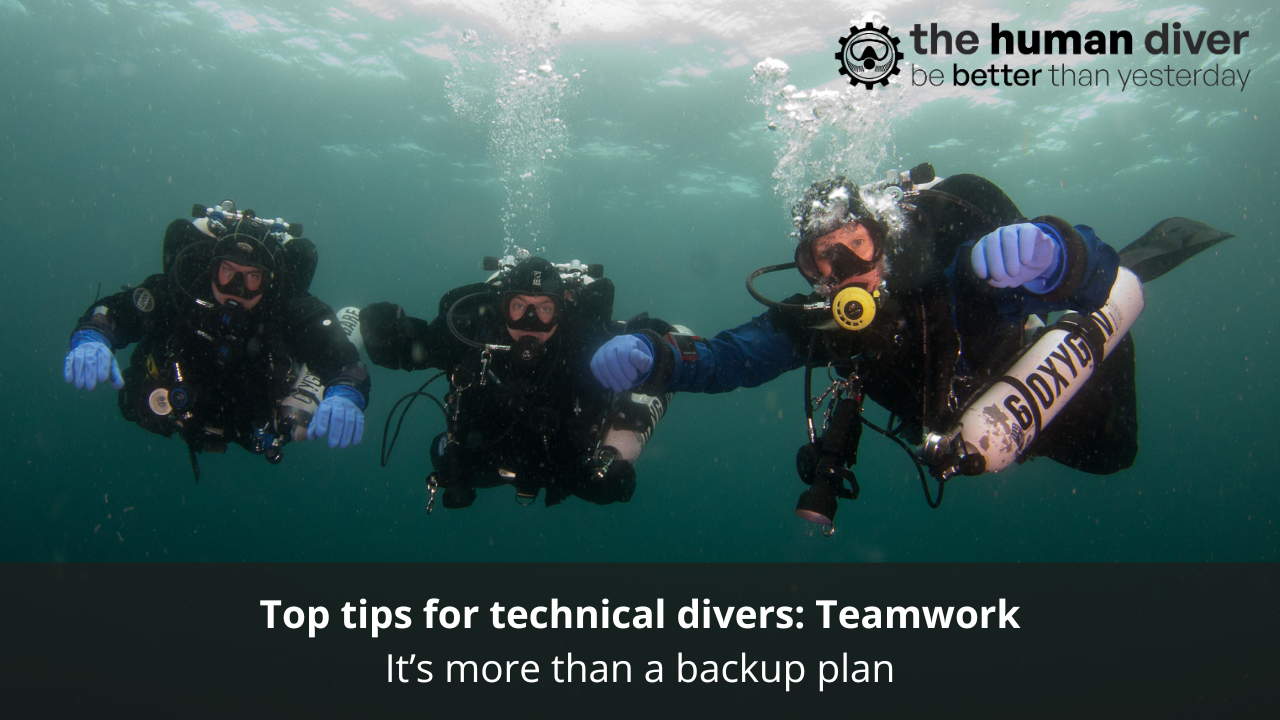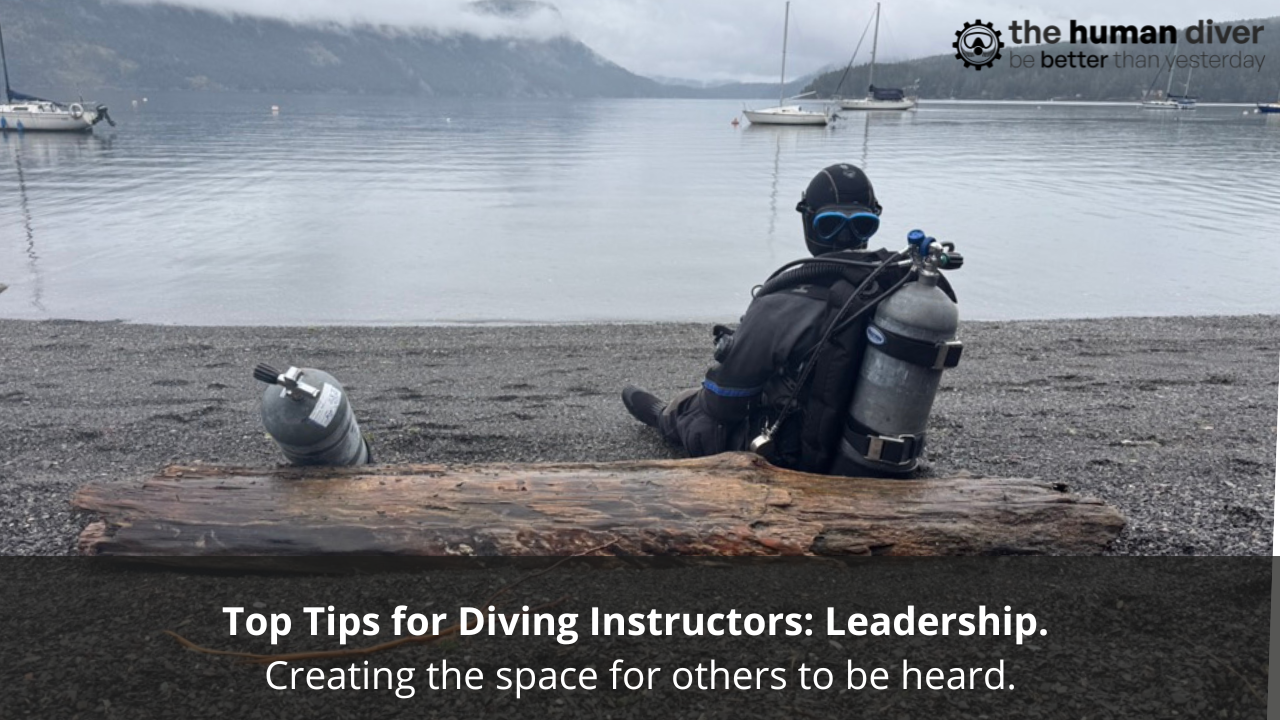
Mind Reading for Beginners
Apr 03, 2024What is Human Factors?
I get asked this question frequently when I am talking about The Human Diver. For years I’ve explained the concept, the different subjects involved and why it’s relevant to divers. But it took a 10 year old to finally get it down to a simple answer. I was talking to a friend and was telling her my normal answer when her son, who’d been listening, butted in and said “so you’re a mind reader then?”. And I realised, yes, that’s pretty much what Human Factors allows you to do.
The problem with humans is that we don’t communicate very well. And I don’t mean individually, I mean as a species. Birds fly in perfect formation, bees give complex directions to locations miles away and fish swim in huge schools without bumping into each other and change direction almost instantaneously. But humans? We wander along, bumping into each other, misunderstanding each other and generally not being sure of what exactly other people are thinking or doing. Most of this is down to the way we communicate. We rely predominantly on words, with some body movements and facial expressions thrown in for good measure. While this should allow us to get complex ideas across, we frequently don’t actually say what we mean. This can be because we think the other person understands (when they don’t), because we are embarrassed, because we’re angry or a hundred other reasons. Even when we’re trying to tell someone what to do we aren’t always clear because of biases, assumptions or simply not using the right words!

Human Factors makes it easier to do the right thing and harder to do the wrong thing. We look at communication in detail. Not just looking at what people are saying but the way it’s being said and what isn’t being said. During the face to face course we let people make mistakes, figure out why they made those mistakes and learn how to communicate that to others so they can learn. People start to be able to hear what isn’t being said. They learn about barriers that are in place that stop communication happening, and how to break these barriers down.
We humans are also fairly blind. We miss the most conspicuous things because we’re looking at something else. We think because we’ve done something before everything will be exactly the same the second time. Again, we make assumptions about what we think will happen and are biased against even the most obvious situation.
Learning to mind read means looking at what people actually know. All those “obvious” things that are apparent to everyone else that have been missed. If someone knows what you don’t know, then suddenly they’re in a great position to be able to help you fill in the gaps. The problem is it’s almost impossible to tell someone what you don’t know…after all, we all don’t know far more than we know, so it’s up to a mind reader to be able to decipher someone’s knowledge and ability.
The great thing about learning to be a mind reader is when you’ve got a fellow mind reader to work with. Suddenly everything is easier because you’ve basically cloned yourself. Now the two of you can work as one. Imagine having 2 pairs of hands, 2 brains…. Now imagine multiplying that again. A whole team with a shared understanding. Each individual member of the team understanding the others perfectly. When choices have to be made you can share the knowledge each of you has so everyone understands the reasoning behind the decisions and make them faster next time.

But it doesn’t mean you’re all just mindless clones. If one person has to step up and lead, they can, without crushing everyone else. In fact, a mind reader knows how to lead by helping others and using their strengths for the best. Most humans are terrible leaders because we find it so difficult to know what others need. Add in some ego and all of the problems mentioned above and it’s a wonder we ever managed to crawl out of the swamps!
As humans we’re also blind to our weaknesses. We don’t recognise when we’re incapacitated because we’re tired. When we’re in a stressful situation, rushing to get things done, it’s easy to miss that we’ve made a mistake. When we have pressure on us to get too much done it can be really difficult to say “no, I can’t do that”, or simply “help”. Imagine having a mind reader there who can see that there’s a problem before it turns into something big.
Ok, so maybe Human Factors isn’t quite mind reading. Sadly, we haven’t got that far. But it is about as close as we can get. It does teach us different ways of communicating, new understanding of the limits of our awareness, how to develop teamwork and leadership behaviours, a dive into the decisions we make (and why we make them) and how to become aware of the limiting factors of simply being human. Put all of these things together and it’s about as close as you’ll get to being a mind reader.

Jenny is a full-time technical diving instructor and safety diver. Prior to diving, she worked in outdoor education for 10 years teaching rock climbing, white water kayaking and canoeing, sailing, skiing, caving and cycling, among other sports. Her interest in team development started with outdoor education, using it as a tool to help people learn more about communication, planning and teamwork.
Since 2009 she has lived in Dahab, Egypt teaching SCUBA diving. She is now a technical instructor trainer for TDI, advanced trimix instructor, advanced mixed gas CCR diver and helitrox CCR instructor.
Jenny has supported a number of deep dives as part of H2O divers dive team and works as a safety diver in the media industry.
If you'd like to deepen your diving experience, consider taking the online introduction course which will change your attitude towards diving because safety is your perception, visit the website.
Want to learn more about this article or have questions? Contact us.

